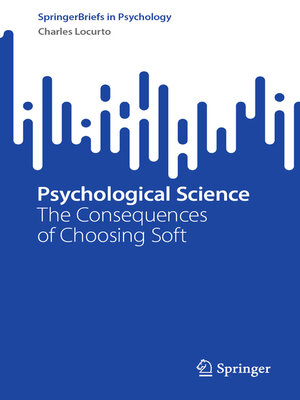Psychological Science
ebook ∣ The Consequences of Choosing Soft · SpringerBriefs in Psychology
By Charles Locurto

Sign up to save your library
With an OverDrive account, you can save your favorite libraries for at-a-glance information about availability. Find out more about OverDrive accounts.
Find this title in Libby, the library reading app by OverDrive.



Search for a digital library with this title
Title found at these libraries:
| Library Name | Distance |
|---|---|
| Loading... |
This book examines questions of experimental design, in social science principally concerning what happens if shortcuts are allowed in the design, analysis, and interpretation of psychological research. The author argues that shortcuts lead to experimental results that are of low power and lack the precision that should be afforded experimental work. Consequently, it should not be surprising that psychological science has difficulty replicating its findings. A more specialized focus is the lack of success of self-esteem training techniques despite their widespread usage. The failure of self-esteem training is contrasted with the success of work that involves the use of standardized testing procedures and scores, such as IQ. From this perspective, while self-esteem and IQ testing have been each proposed as Hole Grails, meaning that they constitute comprehensive influences on many aspects of behavior, only IQ can function in this manner. It is also argued that some areas of social science, particularly unconscious bias, have not been subjected to sufficient critical scrutiny, and therefore are associated with rather weak empirical profiles that do not justify the popularity of the procedures. Throughout the book, the work habits of modern scientists are contrasted with those of one of science's most successful practitioners, Charles Darwin, and to a lesser extent, Sigmund Freud. Contrasts between the historically-validated work of Darwin on the one hand, and modern psychological science, suggest avenues of methodological improvement in the practice of modern psychological science.







